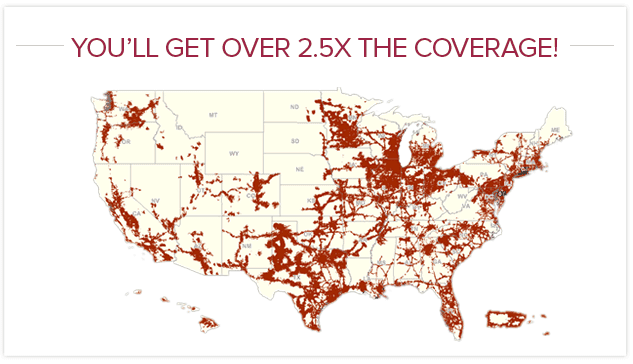Now that Verizon Wireless has stopped signing up new customers for its unlimited usage data plan, AT&T plans to start targeting its grandfathered unlimited-data customers with speed throttles that will effectively limit the company’s “unlimited use” plan. And the company is trying to suggest approval of its merger with T-Mobile might prevent its growing use.
AT&T says effective Oct. 1, the top 5 percent of its wireless users will receive a warning message before their speeds are cut to near-dial up for the remainder of the billing cycle.
“We’re taking steps to manage exploding demand for mobile data,” said the company in a statement. AT&T added that “nothing short of completing the T-Mobile merger” will effectively solve the company’s network capacity issues.
“The planned combination of AT&T and T-Mobile is the fastest and surest way to handle the challenge of increasing demand and improving network quality for customers,” said AT&T.
With Verizon Wireless’ exit as a competitive alternative for unlimited data, AT&T’s newly announced speed throttle may not pose much of a risk for business when implemented, as infuriated customers have just one remaining provider offering unlimited data – Sprint.
While AT&T has not specified an exact amount of data usage that will put users in the penalty corner, they did say most of those facing throttling are “streaming video or playing some online games.”
Some AT&T customers use their unlimited wireless plans as a home broadband replacement — an action that could easily bring back a dial-up experience when the speed throttle kicks in.
Only customers on “unlimited use” plans will face AT&T’s special speed treatment. Those paying for usage-limited packages are exempt.
AT&T’s ongoing hard-sell for the merger has not been well-received by some on Capitol Hill.
Sen. Al Franken (D-Minn.) blamed AT&T for its lack of willingness to spend money on improving its own network infrastructure for self-inflicted network capacity problems. Franken believes the merger would be anti-competitive and anti-consumer.
In letters to the Department of Justice and Federal Communications Commission, Franken spelled out in great detail why approving the merger does not make sense:
“The competitive effects of a merger of this size and scope will reverberate throughout the telecommunications sector for decades to come and will affect consumer prices, customer service, innovation, competition in handsets and the quality and quantity of network coverage. These threats are too large and too irrevocable to be prevented or alleviated by conditions,” wrote Franken.
The International Business Times summarized many of Franken’s larger points:
- AT&T owns more spectrum than any other company, yet AT&T has been plagued with delays in rolling out infrastructure to support spectrum it has been allocated. The quality of the service it provides is consistently ranked last amongst the national carriers, and it continues to use spectrum in an inefficient manner;
- Many of [AT&T’s] spectrum licenses remain undeveloped, including $9 billion worth of some of the most valuable “beachfront” spectrum;
- Other national wireless carriers have been aggressively preparing for this crunch. However, unlike the other wireless providers, AT&T has not visibly taken decisive steps to prepare for the coming crunch, despite the fact that AT&T should have recognized the need for additional investment shortly after introducing the iPhone in 2007;
- AT&T only increased its spending on wireless infrastructure by one percent in 2009. Although AT&T will point out that one percent is still a significant number, Verizon made the decision to increase its capital spending by 10 percent in 2009/9 and Verizon is now in a much better position when it comes to spectrum capacity.


 Subscribe
Subscribe






